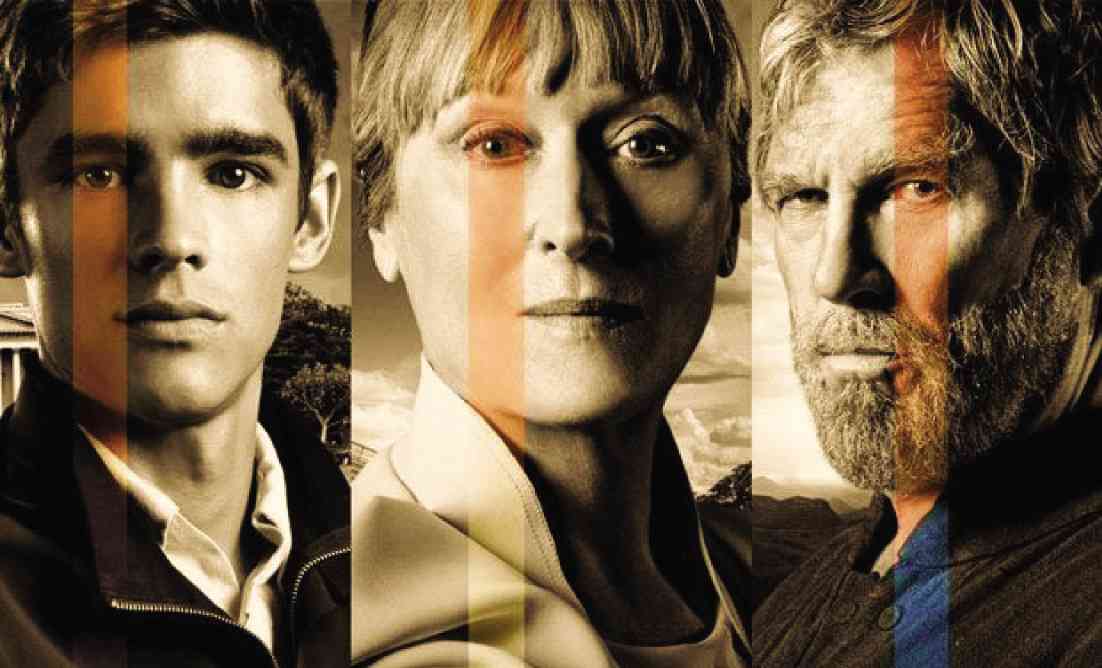Meryl Streep shot some of her scenes in “The Giver” while she was filming Rob Marshall’s star-studded screen musical, “Into The Woods,” where she sings Stephen Sondheim’s brooding melodies as the vengeful Witch.
In Phillip Noyce’s screen adaptation of Lois Lowry’s young-adult fiction, Streep neither sings nor snarls venomous warnings—but, she is just as creepy as the Chief Elder of a dystopian Community that guarantees “sameness” and equality—by suppressing all forms of emotions and memories!
Set in 2048, the sci-fi fantasy tells the tale of 16-year-old Jonas (Brenton Thwaites), who lives in a world where every resident is assigned a specific task or function. There’s no war, crime, cruelty, racial inequality and hunger, but this cultish world is devoid of excitement, music and dancing, emotional interaction and color—and love is considered a hazardous frivolity! To curb the urge to go against Sameness, dissidents are banished into the land of Elsewhere!
Special function
Jonas has a special function, however: As the Receiver of Memories, he is exempted from all rules regarding “rudeness,” and is permitted to ask questions—and lie. He’s the only person allowed to receive all the memories of the past from the Giver (Jeff Bridges), including the exhilarating joys and cruel excesses of “unmoderated” freedom.
When his training ends, it’s his duty to help guide the Elders, who have no access to emotions and memories, about crucial decisions for the Community. As he learns more, the teenager begins to see colors slowly popping all around him! Suddenly, he can appreciate the warmth and beauty of listening to Christmas carols!
When he discovers the fate that befell the last Receiver of Memories, Rosemary (Taylor Swift), 10 years ago, Jonas sees his special gifts as a curse that needs exorcising. Does he have what it takes to rid the world of apathy?
The jump of “The Giver” from page to screen has yielded polarizing reactions from critics and the popular novel’s followers—but, it’s hard to disregard the achievements of Lowry’s book, because it jump-started the trend that led to the production of now-generic (and financially lucrative) young-adult-fiction fantasies like “The Hunger Games,” “Divergent” and the upcoming “The Maze Runner.”
The parallel world Noyce imagines is as deceptively lovely as it is menacing, and introduces viewers to allegorical issues that aren’t too far removed from the world as we know it. On point of pacing, however, the film is a slow burn.
True, it is sometimes too mannered in its depiction of a utilitarian society—but, that’s the point of the novel: There isn’t much to live for in a world that outlaws the freedom to make mistakes, as well as the heady thrills of spontaneity. As one character deftly points out: Seeing isn’t enough. If you can’t feel anything, what’s the point?
With Bridges lending strong support, Thwaites ably carries the weight of the film on his young shoulders, but wisely resists the temptation to overact.
As for Streep, whatever you say about those “scarifying,” humongous tresses, she manages to set the screen ablaze with a brief portrayal that goes against the grain—no yelling, no eye-popping, histrionic theatricality.
The actress scares, because her arguments “make sense,” even when she’s intoning debatable lines like, “Love is just passion that can quickly turn to contempt—because people are inherently weak!” But, then again, she’s not the movies’ Greatest Living Actress for nothing!


